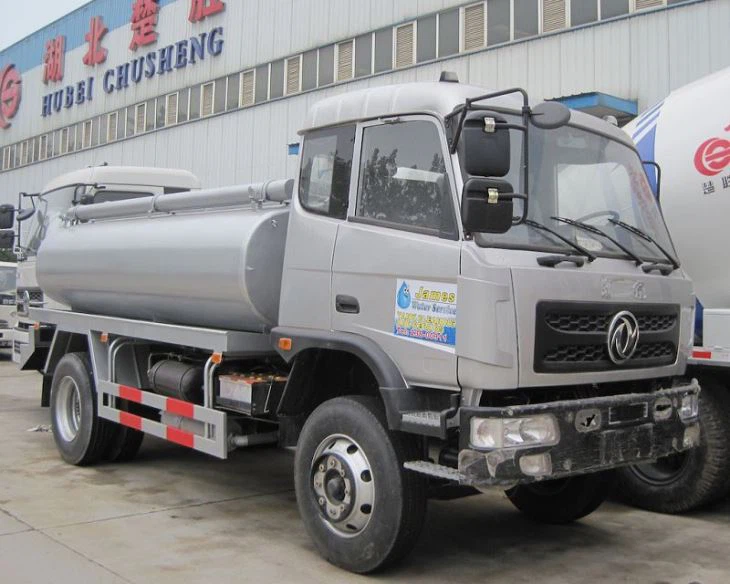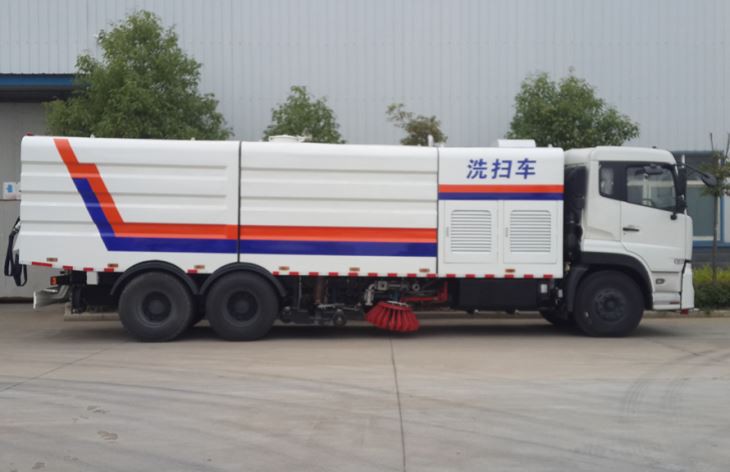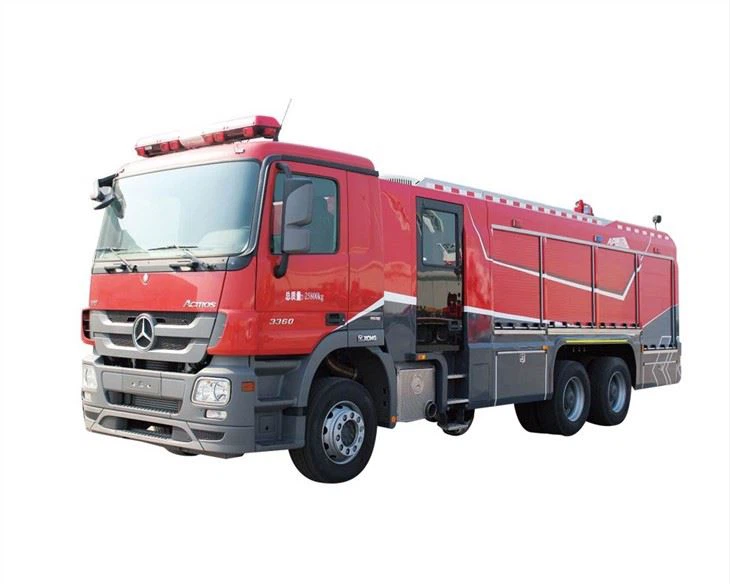Exploring New Vacuum Trucks: Innovations, Features, and Benefits

Vacuum trucks have become essential in various industries, including construction, sewage management, and environmental cleaning. As technology advances, new vacuum trucks are being developed with improved features that enhance their efficiency and versatility. This article explores the latest innovations in vacuum trucks, their applications, and how to choose the right one for your needs.
The Importance of Vacuum Trucks in Today’s Industry
Vacuum trucks play a pivotal role in collecting and transporting liquids, sludge, and debris. Their design allows them to tackle challenging conditions effectively, making them indispensable in many sectors. Below are a few key reasons why vacuum trucks matter:
- Efficient Waste Management: Vacuum trucks help in cleaning up spills, sucking up waste materials, and transporting them to appropriate disposal facilities.
- Environmental Protection: By efficiently removing hazardous materials, they minimize environmental risks and promote a cleaner ecosystem.
- Safety Enhancements: Using vacuum trucks reduces manual handling of harmful materials, ultimately enhancing workplace safety.
Understanding New Technologies in Vacuum Trucks
The Integration of Technology
Modern vacuum trucks are now equipped with advanced technologies that boost their performance and user-friendliness. Here are some notable advancements:
- Telematics: Many modern vacuum trucks come equipped with telematics systems that allow operators to monitor performance metrics, fuel consumption, and maintenance schedules in real time.
- Automated Controls: Automation features enable users to control suction power, water pressure, and other functionalities efficiently.
- Improved Filter Systems: New vacuum trucks often feature sophisticated filter systems that enhance air quality and improve the cleaning process.
Enhanced Design and Build
The design of vacuum trucks has evolved significantly. Here are some improvements:
- Lightweight Materials: The use of lightweight yet sturdy materials enhances fuel efficiency and maneuverability.
- Compact Versions: Compact vacuum trucks are now available, allowing for easy navigation in tight urban environments.
- Ergonomic Features: Such features make operation simpler and less physically demanding for drivers and operators.
Main Types of New Vacuum Trucks
Heavy-Duty Vacuum Trucks
Heavy-duty vacuum trucks are designed for intense industrial applications. They typically have high-capacity tanks and powerful vacuum systems.
Applications:
- Construction sites for debris removal
- Municipalities for street cleaning
Liquid Waste Vacuum Trucks
These trucks are particularly suited for carrying liquid waste such as sewage and hazardous materials.
Applications:
- Wastewater treatment plants
- Oil spill recoveries
Portable Vacuum Trucks
Portable vacuum trucks offer flexibility and can easily reach remote locations.
Applications:

- Environmental cleanups in hard-to-reach areas
- Service provisions for rural locations
Vacuum Excavation Trucks
This type combines vacuum capabilities with excavation tools, making them ideal for digging without damaging underground utilities.
Applications:
- Utility installations
- Archaeological digs
Choosing the Right Vacuum Truck
Assess Your Needs
Before purchasing, assess your specific needs. Consider factors such as:
- The types of materials you will be handling
- Your operating environment and space constraints
- Your budget and expected return on investment
Understand the Specifications
Specifications are crucial in determining the truck’s performance. Focus on:
- Tank Capacity: Choose a tank size that matches your workload requirements.
- Vacuum Power: Higher vacuum power is beneficial for extracting tough materials.
- Water System: Ensure it has a reliable water system where applicable.
Evaluate Brand and Model
Research reputable brands and models. Key manufacturers often have proven track records for quality and reliability.
Cost Factors of New Vacuum Trucks
Purchase Price
The upfront cost of a vacuum truck can vary significantly based on various factors, including type, size, and features. Here’s a rough estimate:
| Type of Vacuum Truck | Estimated Cost |
|---|---|
| Heavy-Duty Vacuum Truck | $150,000 – $400,000 |
| Liquid Waste Vacuum Truck | $100,000 – $300,000 |
| Portable Vacuum Truck | $80,000 – $200,000 |
| Vacuum Excavation Truck | $250,000 – $500,000 |
Maintenance Costs
Regular maintenance is essential for the longevity of vacuum trucks. Keep the following in mind:
- Visual inspections to check for wear and tear.
- Scheduled servicing as per manufacturers’ guidelines.
- Repairs can be costly, so consider warranties and service agreements.
Practical Tips for Operating New Vacuum Trucks
Training Operators
Proper training is vital. Ensure that your operators are well-versed in the truck’s controls, safety features, and maintenance protocols.
Pre-Operational Checks
Conduct checks before starting any operation:
- Inspect the vacuum hose for damages.
- Check fluid levels and tire pressures.
- Ensure all safety gear is in place and functioning.
Regular Maintenance Practices
Incorporate the following practices:
- Lubricate moving parts regularly.
- Clean filters per manufacturer recommendations.
- Document all maintenance activities for tracking purposes.
Future Trends in Vacuum Truck Technology
Sustainability and Environmental Standards
As environmental regulations tighten, manufacturers are developing vacuum trucks that meet higher sustainability standards. These trucks may include:
- Eco-friendly materials
- Lower emissions engines
- Advanced filtration systems to reduce environmental impact
Smart Features

The future might also see smart vacuum trucks equipped with AI for predictive maintenance and better operation control.
Common Questions About New Vacuum Trucks
1. What is the average lifespan of a vacuum truck?
The lifespan of a vacuum truck can typically range from 10 to 15 years, depending on usage and maintenance.
2. How often should maintenance be performed on a vacuum truck?
Maintenance should be performed regularly, ideally every 1,500 to 5,000 operating hours, or as specified by the manufacturer.
3. Can vacuum trucks be customized for specific tasks?
Yes, many manufacturers offer customization options that allow you to tailor vacuum trucks for specific applications.
4. What type of training is required to operate a vacuum truck?
Operators should undergo comprehensive training covering operational controls, safety measures, and maintenance standards.
5. Are there environmentally friendly vacuum truck options?
Yes, several manufacturers are developing vacuum trucks that comply with environmental standards and use sustainable technologies.

6. Can vacuum trucks handle hazardous materials?
Many vacuum trucks are specifically designed to handle hazardous materials, equipped with safety features and inspections in mind.
